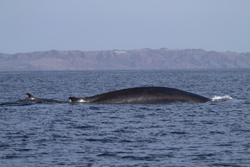Measuring the impact of ocean noise on whales
Noise from human activities in oceans — like marine shipping traffic, offshore oil and gas activities, and renewable energy generation — has drastically increased over the last few decades. The EU-funded 'Chronic ocean noise: Cetacean ecology and acoustic habitat loss' (CONCEAL) research project sought to quantify the impact of ocean noise on specific species using rigorous, repeatable and standardised methods. Biologists, acousticians and statisticians worked together to gauge the consequences of a reduction in whale prey due to human-generated noise. They focused on fin, humpback and killer whales. The team analysed captive feeding records and prey abundance, body condition and pregnancy rate data from North Atlantic fin whales. They also developed advanced statistical models of whale populations in response to changes in prey availability due to human activities. Major outcomes of the project included a partnership with Danish scientists to compare the acoustic behaviour of harbour porpoises in Danish and Canadian waters. In addition, a research partnership with American,Australian and Canadian scientists was set up to develop methods for incorporating shipping noise into marine spatial planning processes. Overall, the CONCEAL project has convinced major role players to define ocean noise as an anthropogenic stressor to marine mammals, and to consider its environmental impacts. From a scientific point of view, a number of research papers have been published and long-term collaborations were established.

